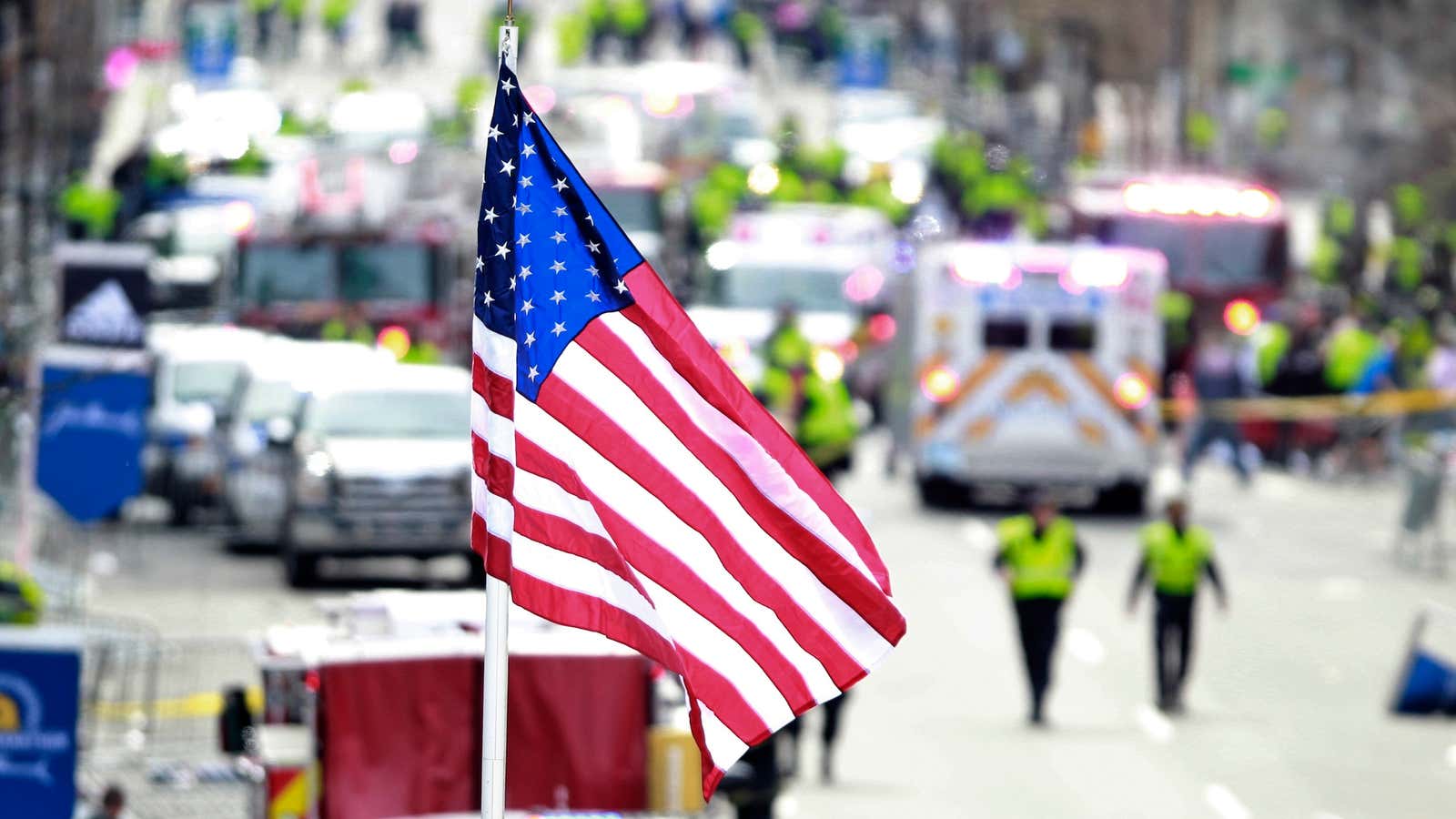One of the macabre questions to ask after the deadly explosions at the finish line of the Boston marathon is, “What took so long?”
Any number of would-be perpetrators, both in the US and outside it, have an interest in creating carnage that they know the American media will amplify. While airports and government buildings boast more scanners and surveillance cameras than they used to, public gatherings from sports events to railways and buses often lack extensive security measures.
And yet, while other countries face war and ethnic strife on a daily basis—an explosion in Iraq today killed 36 people—mass bombings have been fairly rare in the United States. As best as Quartz can determine, no one in the United States has been killed in a bomb attack since Eric Rudolph, the Olympic Park bomber, struck an Alabama abortion clinic in 1998.
That’s not a coincidence, according to Bruce Schneier, a cryptographer and security expert.
“It’s really hard to pull it off,” he says of a terrorist attack. “Everyone gets their ideas of how easy it is to do this stuff from the movies. After 9/11, people were saying, oh, there will be two of these a year forever. You’ve got to get really lucky to pull one of these attacks off. Occasionally, the bad guys get lucky. This is one of those occasions.”
Recent attempts to attack the US with bombs have failed or been discovered by law-enforcement officials, sometimes in stings that are criticized as near-entrapment. An attempt to bomb New York’s Times Square in 2010 ended with a fizzle after the explosives malfunctioned and a suspicious car was reported to police.
Schneier has criticized the US reaction to the terrorist acts of 9/11 as theater that provides expensive reassurance—and spread paranoia—without creating much in the way of real safety. He’s not the only one: Research suggests that the $1 trillion bump in security spending (pdf) after the 9/11 attacks was wasteful, potentially playing into the intent of attackers to provoke outsized and self-harming reactions in their victims. He hopes that the same dynamics won’t play out following the Boston explosions, although he expects that they will.
“The proper reaction to this is to refuse to be terrorized,” he says. “Don’t do the terrorists’ job for them. If you are terrorized, they win, if you are not terrorized, they lose. Terrorism is a crime against the mind.”
He also fears that politicians will go looking for policy insight into this event, rather than dealing with more endemic problems.
“You don’t find lessons in events that happen almost never,” Schneier says. “More people died this month in automobile crashes than died in 9/11. More people will die next month than died in 9/11. By definition, when something is in the news, don’t worry about it. News is things that almost never happen. There aren’t enough terrorists on the planet to make it so that the most dangerous person to a woman isn’t her husband or lover.”
The data bear him out. In 2010, 15 Americans were killed by terrorists worldwide, according to the National Counterterrorism Center. That same year, 1,017 American women were killed by their husbands or intimate partners, according to this analysis of FBI data (pdf).




